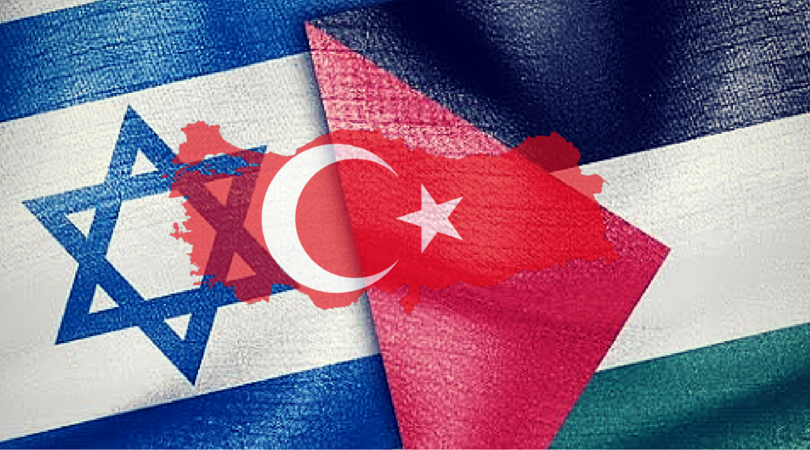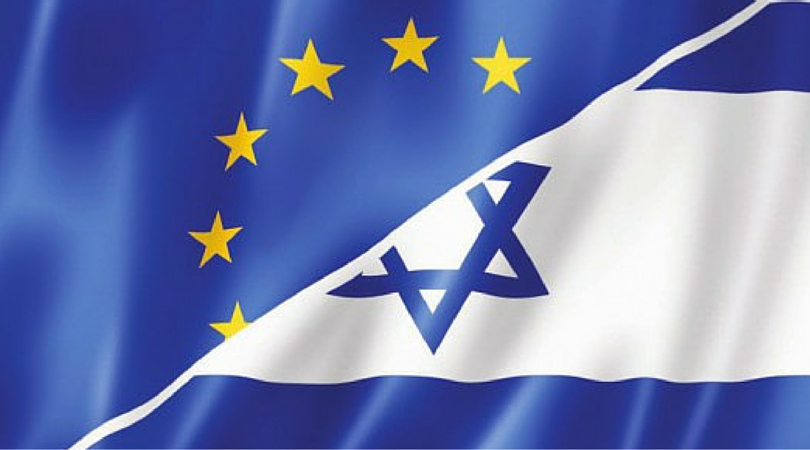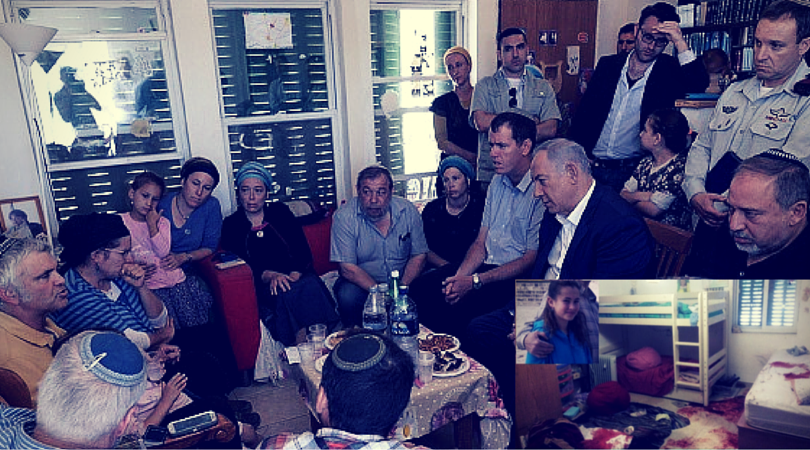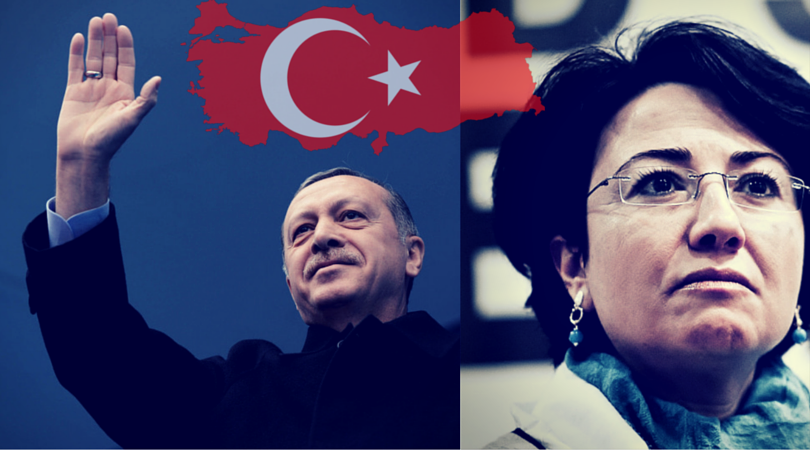After learning of Moshe’s stunning victory against the Amorites, King Balak of Moav forged an alliance with Midian in order to wage war together against the Children of Israel. Once realizing the extent of Israel’s strength, however, Moav and Midian enlisted the infamous Bilaam to attack the Hebrew tribes through spiritual means.
Rabbi Shmuel Bornsztain – the second Admor of the Sokhatshov Ḥasidic dynasty – teaches in his Shem MiShmuel that Balak did not necessarily seek Israel’s destruction but was determined “to strike it and drive it away from the land” (BAMIDBAR 22:6). Pointing out that Israel posed no direct threat to either Moav or Midian, as neither people’s territory was en route to the Promised Land, the Shem MiShmuel quotes our Sages as teaching that Balak’s primary goal was to prevent the Hebrew tribes from entering the Land of Israel (Tanḥuma Balak 4, Bamidbar Rabbah 20:7).
The Shem MiShmuel further quotes the explanation of the Ḥidushei HaRim – the first Ger Admor Rabbi Yitzḥak Meir Alter – on the verse “the heavens are HaShem’s but the earth He gave to mankind” (TEHILLIM 115:16), where he teaches that man is tasked with creating heaven from earth by giving concrete physical expressions to the Divine Ideal. This is accomplished through the performance of themitzvot that uplift all aspects of the material world to their highest functions in existence. According to the Ḥidushei HaRim, this verse reveals the entire purpose of Creation.
Israel is charged with establishing a “kingdom of priests and a holy nation” (SHEMOT 19:6) that will elevate every sphere of national life and reveal the kedusha inherent in our physical world. The Shem MiShmuel explains that Israel’s task is not to live monastic spiritual lives in the desert but to express the Divine Ideal in all areas of human endeavor. This goal necessitates the establishment of a Hebrew Kingdom in Eretz Yisrael that will serve as a light unto nations and reveal HaShem’s Oneness to all humankind.
According to the Shem MiShmuel, Balak and Bilaam desperately sought to avoid such a kingdom for fear Israel’s example would force them to apply a Divine moral standard to governance, commerce and other features of the material world, ultimately stripping them of the benefits they enjoyed from the corruption permeating the political realm. Having no objection to Hebrews living lives of individual piety disconnected from national life, Moav and Midian feared the establishment of a Hebrew Kingdom because they intuitively understood that if Am Yisrael were to achieve political sovereignty over Eretz Yisrael, we would eliminate the illusory separation of “religion” and “state” and influence humankind to ultimately adopt policies that reflect a higher moral standard. Through Bilaam’s ability to curse, they hoped to keep Israel forever stranded in the desert where we could live ascetic spiritual lives disconnected from national issues. But while our enemies championed a separation of kedushaand statecraft, Israel’s historic mission demands that we materialize our spiritual ideals on a national level so that the Torah’s deepest values attain full expression in this world.
Once Bilaam is recruited for the war effort against Israel, the Torah recounts a bizarre situation in which the very laws of nature were temporarily altered. Although nevua as it is generally understood is an exclusively Hebrew trait, the gentile Bilaam possessed some level of prophecy and even attempted to use this gift to assist Israel’s enemies. When HaShem obstructed Bilaam’s path and he in turn began to beat his donkey, another abnormal occurrence took place.
“HaShem opened the mouth of the she-donkey and it said to Bilaam, ‘What have I done to you that you struck me these three times?’” (BAMIDBAR 22:28)
Bilaam’s donkey actually spoke as if she were human, complaining to her master for his abusive treatment and humiliating him before the elders of Moav. Rabbi Yehuda HaLevi teaches in The Kuzari that there are five levels of Creation (inanimate objects, plant life, animals, human beings, Israel). One attribute that separates between the third and fourth levels – between animals and humans – is the power of speech. And the major trait differentiating Israel from human beings is the potential to attain nevua (or at least prophecy that can transcend one’s own national experience). Bilaam’s donkey was able to speak only for the sake of clarifying the significance of Bilaam’s prophecy. Just as HaShem bent the laws of nature in order that a donkey could possess the ability to speak, so too was He bending the laws of nature in order that a gentile could possess the ability to prophesy regarding Israel. And rather than allow him to utter a curse against the Hebrews as Balak had instructed, HaShem forced Bilaam to bless His treasured nation.
The Maharal of Prague teaches in Netzaḥ Yisrael that the greatness of Bilaam’s blessing exceeded even those of Yaakov and Moshe, possessing no rebuke or distraction from pure brakha (Yalkut Shimoni Balak 25). Bilaam represented the extreme opposite of Israel’s spiritual power and the intensity of his desire to curse the Hebrew tribes made him the ideal candidate to serve as the conduit for HaShem’s abundant blessing, illustrating the Kadosh Barukh Hu’s mastery over even those forces that appear to stand in the way of Israel’s national mission. But to fully grasp why HaShem would suspend the world’s natural order by granting Bilaam such a uniquely Hebrew trait, we must examine a piece of his final message and understand what Divine benefit could be extracted from the anomaly.
“I shall see him, but not now, I shall look at him, but it is not near. A star has issued from Yaakov and a tribe has risen from Israel, and he shall pierce the nobles of Moav and undermine the children of Shet. Edom shall be a conquest and Seir shall be the conquest of his enemies – and Israel will attain success. One from Yaakov shall rule and destroy the remnant of the city.’” (BAMIDBAR 24:17-19)
The holy Ohr HaḤaim explains these verses to mean that if the redemption occurs due to Israel’s merit, it will come as a supernatural event with the messianic redeemer being revealed through great wonders. But if the redemption comes in its time – without the Hebrew Nation necessarily deserving it – there will rise up a group of Jews who come together and – through human endeavor – will assist HaShem (so to speak) in bringing the redemption through natural means.
The redemption can occur in one of two ways. The first option, known as aḥishena (hastened), is a miraculous and supernatural event in which the Nation of Israel is righteous and deserving. The second possibility, where Israel is unworthy, is generally referred to as bi’eta(in its time). This second option exists because as the predetermined goal of all human history, the redemption of Israel must ultimately come about and therefore has a set time if we do not merit it sooner. The Ohr HaḤaim understands from Bilaam’s prophecy that the redemption will most likely unfold through an organization of activists uniting to bring the Jewish people back to the Land of Israel through practical human means.
This understanding – which sheds light on much of what has been taking place in modern times – is well worth HaShem temporarily altering the laws of nature and allowing a gentile to attain a uniquely Hebrew form of prophecy. Israel must internalize this crucial message in order to not only gain a heightened perspective of current events but also to fulfill our national objective of establishing the Hebrew Kingdom that will ultimately reveal the kedusha inherent in all of Creation and bring humanity to recognize HaShem as the Divine Author of the story in which we are all participants.





